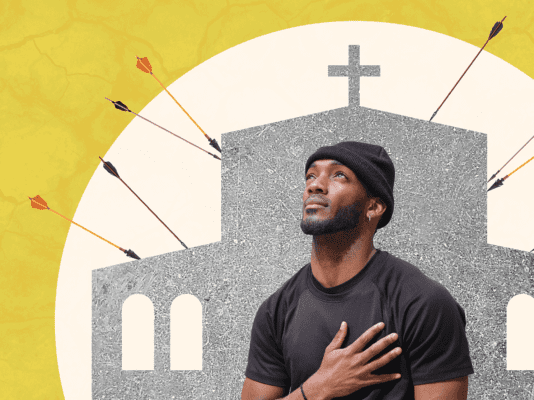The Centers for Disease Control and Prevention (CDC) report that roughly 25% of the United States population has a disability. Within Christian thought, theologians such as Amos Yong, John Swinton, and Sarah Barton are elevating disability as a theological focus. Even further, the Ethics and Religious Liberty Commission (ERLC) has published numerous articles on disability, and the Southern Baptist Convention (SBC) has passed resolutions about the topic. So, what is disability, and how does the Bible lead us to respond to it?
What is disability?
Within the field of disability studies (a generally secular, interdisciplinary academic discipline), most scholars consistently agree upon three frameworks through which society understands disability and how persons with disabilities function in the world:
Biological: The biological view of disability contends that disability is a biological dysfunction of an individual person. To correct the disability if at all possible, medicine is used to repair what does not properly function.
Social: The social view of disability asserts that disability is a social construct. Eliminating disability would mean constructing society in such a way that each person can fully participate in society without restriction.
Moral: The moral view perspective of disability articulates disability as a special moral status, either as a punishment for a sin or as a particular blessing from God. Neither is substantiated by scientific or theological view, but belief in this theory is common.
In considering the validity of each of these frameworks to explain disability, it ought to be noted that most people with disabilities do not use the moral perspective to think about their disability in any meaningful way, as it is largely considered to be pejorative to those with disabilities. Further, the biological and societal framework can explain the same disability in different ways.
Disability in the Bible
How does the Bible explain disability? While the Bible never offers its own definition of disability, it provides much to think about regarding the role of disability, particularly as it relates to God and his redemptive work.
The doctrine of the imago Dei found in Genesis 1 necessarily includes persons with disabilities. A person with a disability, regardless of the type of disability, is equally made in the image of God, bearing the same dignity and possessing the same responsibilities of personhood that all people retain.
Additionally, as the story of God and his people unfolds throughout Scripture, it cannot be told without the integral role of persons with disabilities:
- Jacob/Israel’s limp was a physical disability obtained after wrestling with God (Gen. 32:32).
- Sampson was blind (Judges 16:21).
- Jonathan had a son with physical disabilities (2 Sam. 9:13).
- Zachariah was temporarily non-verbal (Luke 1:20).
- Even Paul, a stalwart missionary of the faith and Christian writer, not only suffered visual impairment, but regularly referenced his “thorn in the flesh,” an allusion Alan Hisey and James Beck argue is a reference to continued visual impairment.
This is not to say that the Bible is a monolith regarding God’s response to disability. For example, consider the man with the withered hand in Mark 9. Jesus heals the man, and when the disciples ask why the man was disabled (a cultural question referring to the possibility of physiognomy), Jesus responds by saying it is for the glory of God. If Mark’s story were to be prescriptive of disability in the Bible, then disability could be understood as a form of worship to serve as edification to God. However, not even Jesus responds to disability in the same way in every situation. Conversely, the story of Zaccheaus offers a new texture to the discussion of disability.
As Amos Yong argues based on his study of the language used to describe Zacchaeus, he likely had congenital dwarfism, a permanent physical disability. When Jesus and Zacchaeus meet, Zacchaeus is never physically healed, but this does not stop him from receiving the forgiveness of his wrongdoings and immediately participating in the work of God. The story concludes with Jesus calling Zaccheaus a “son of Abraham,” a culturally significant identifier demonstrating his spiritual lineage as a direct descendant from this father of the faith.
In light of the complex understanding of disability that the Bible offers, the most fundamental conclusion is that persons with disabilities are made in the image of God and continue to be used by God to bring about his economy on Earth. And as we apply modern understandings of disability to Scripture, light is shed on how one can think about disability and the people of God. This is not to be a summative explanation of all there is to think about disability. However, by studying the Bible from a particular angle, the richness and complexity of the text can be made robust as we pursue in greater depth and clarity of who God is and how he continues to work today.
3 Christian responses
What then is the proper response to the Bible being full of stories of how persons with disabilities are a necessary part of God’s redemptive work? The following are just three potential responses for Christians seeking to more closely embody the heart of God:
1. Read: One of the best ways to immerse yourself in the world of disability as constructed in the Bible is to read books written on the topic of disability that consider it from a Christian perspective. Consider books such as Connor Bales’s Counted Worthy, Amy Kenny’s My Body is Not a Prayer Request, or Henri Nouwen’s Adam. Each of these books offers a compelling story of life proximal to disability and reflection on how that speaks to the Kingdom of God.
2. Participate: Perhaps you live in a community that is resource-rich and can provide the social infrastructure for persons with disabilities to actively participate and be involved in the community (organizations such as L’Arche USA, Camp Barnabas, or Reality Ministries do a great job in this capacity). By becoming involved with such organizations, a common life is created with persons with disabilities, offering a foretaste of the divine economy in that each person is recognized as a full and equal member of the body of Christ.
However, though this is not possible for all persons and churches everywhere, it this does not mean one should fail to work toward participation in the mission of God as it relates to persons with disabilities. A great place to start is with this resource written by Andrew Bertodatti on how churches, regardless of resources and capacity, can better incorporate each person to their community.
3. Pray: While reading is a noble way to become more informed, educated, and aware, it is not the same as in-person experience. Although not all communities have developed social infrastructure for full inclusion of persons with disabilities, this does not mean there are no persons with disabilities in the community. By praying for not only an awareness of persons with disabilities in your community, but opportunities to become friends, learn from, and be formed by these people also made in the image of God, we avail ourselves for the Holy Spirit to work in profound and transformational ways in our lives.










